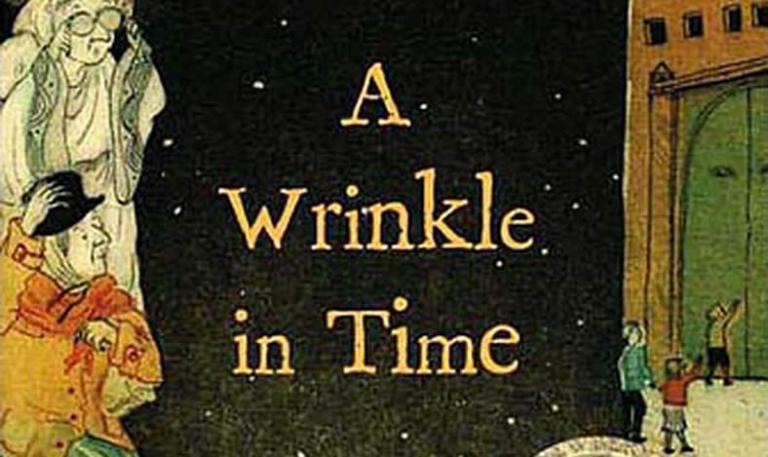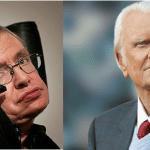
I’ve always liked L’Engle’s work, in part because she had a deep appreciation for both science and God—a balance all-too-rare in these fractious times. Intriguing scientific principles are found throughout her work: A Wrinkle in Time, what with its galactic-hopping tesseracts, fits right in the mold.
But her Christian faith—a faith that has sometimes raised eyebrows and made Wrinkle, ironically one of the world’s most frequently banned books—was absolutely core to who she was and why she wrote.
“If our lives are truly ‘hid with Christ in God,’ the astounding thing is that this hiddenness is revealed in all that we do and say and write,” L’Engle writes in Walking on Water: Reflections on Faith and Art. “What we are is going to be visible in our art, no matter how secular (on the surface) the subject may be.”
Not that L’Engle’s A Wrinkle in Time is particularly secular. She leaves no doubt that the story’s mysterious Mrs. Whatsit, Mrs. Who and Mrs. Which are in the service of a holy power, and that power is God. Listen to what Mrs. Who tells Meg before sending her to the dark planet of Camazotz on a terrifying, dangerous mission:
“Listen, Meg. Listen well. The foolishness of God is wiser than men; and the weakness of God is stronger than men. For ye see your calling, brethren, how that not many wise men after the flesh, not many mighty, not many noble, are called, but God hath chosen the foolish things of the world to confound the wise; and God hath chosen the weak things of the world to confound the things that are mighty. And base things of the world, and things which are despised hath God chosen, yea, and things which are not, to bring to naught things that are.’ She paused and then she said, ‘May the right prevail.'”
It’s one of several explicitly Christian references in the book. at one juncture, Meg’s father reminds her that “all things work together for good to them that love God, to them who are called according to His purpose.” When they land on a strange planet populated by blind-but-loving beasts, one tells Meg, “We look not at the things which are what you call seen, but at the things which are not seen, for the things which are seen are temporal. But the things which are not seen are eternal.” And on and on.
L’Engle’s understanding of God and faith informs this world she unfurls in Wrinkle—every paragraph and period has a Christian God in it.
We can still hear faint echoes of that God in Disney’s movie. But you have to listen much harder to hear them.













